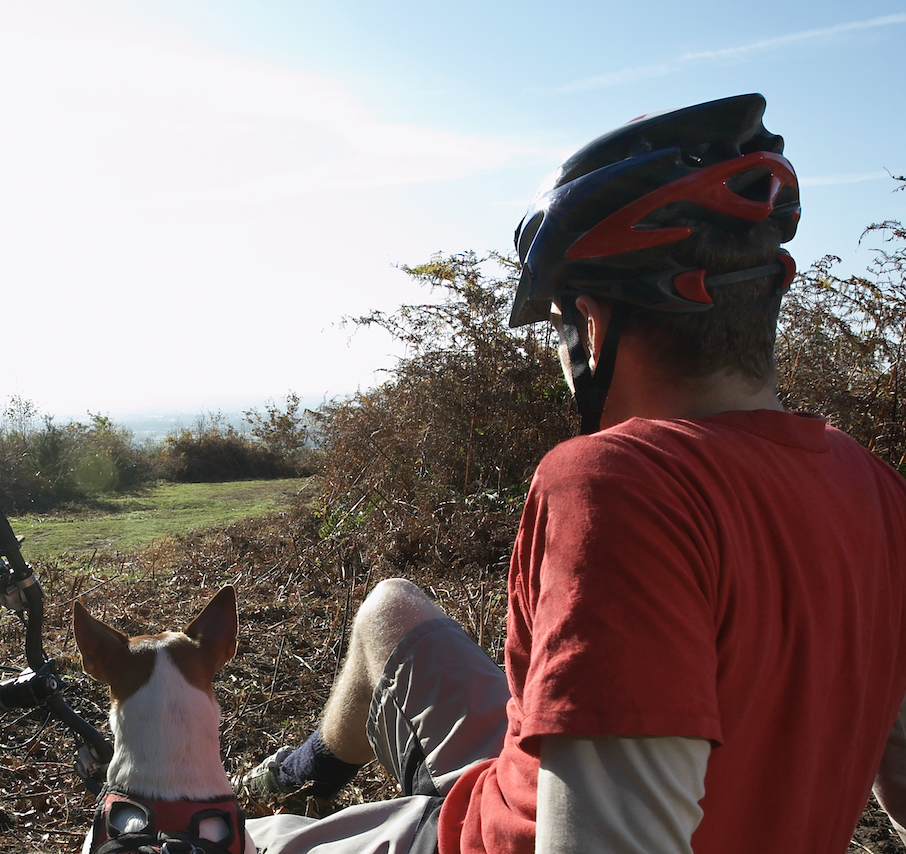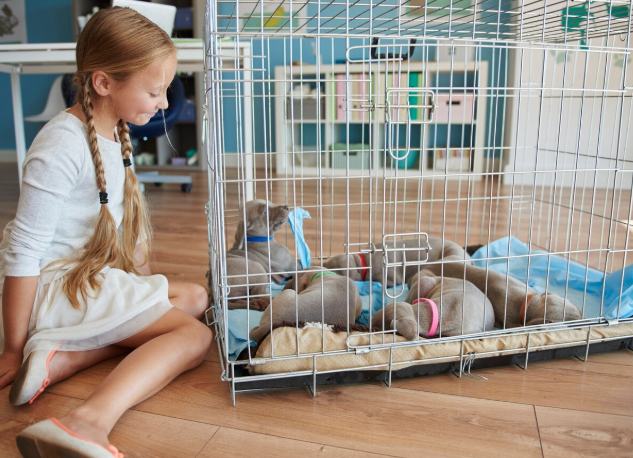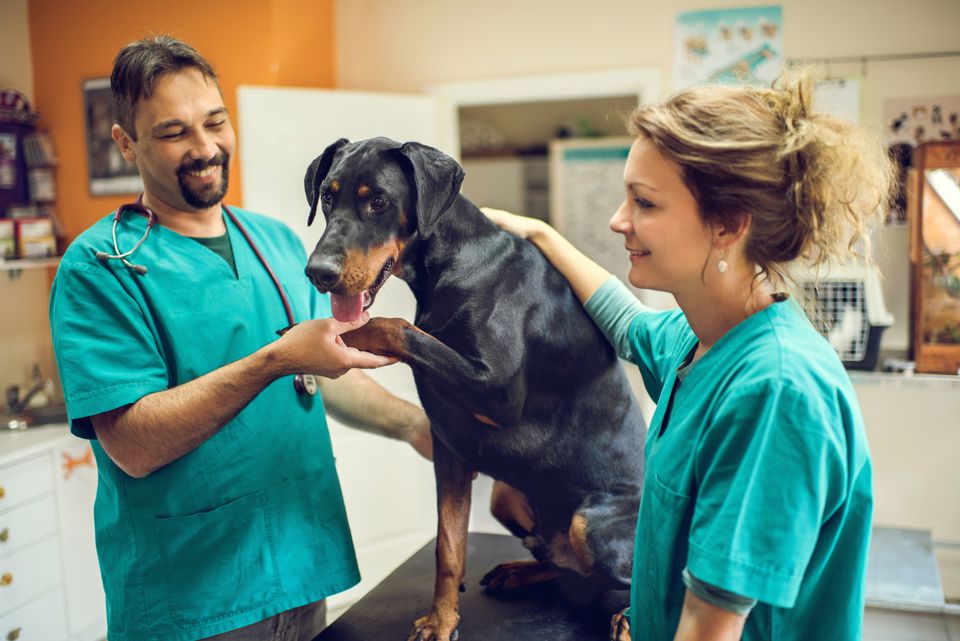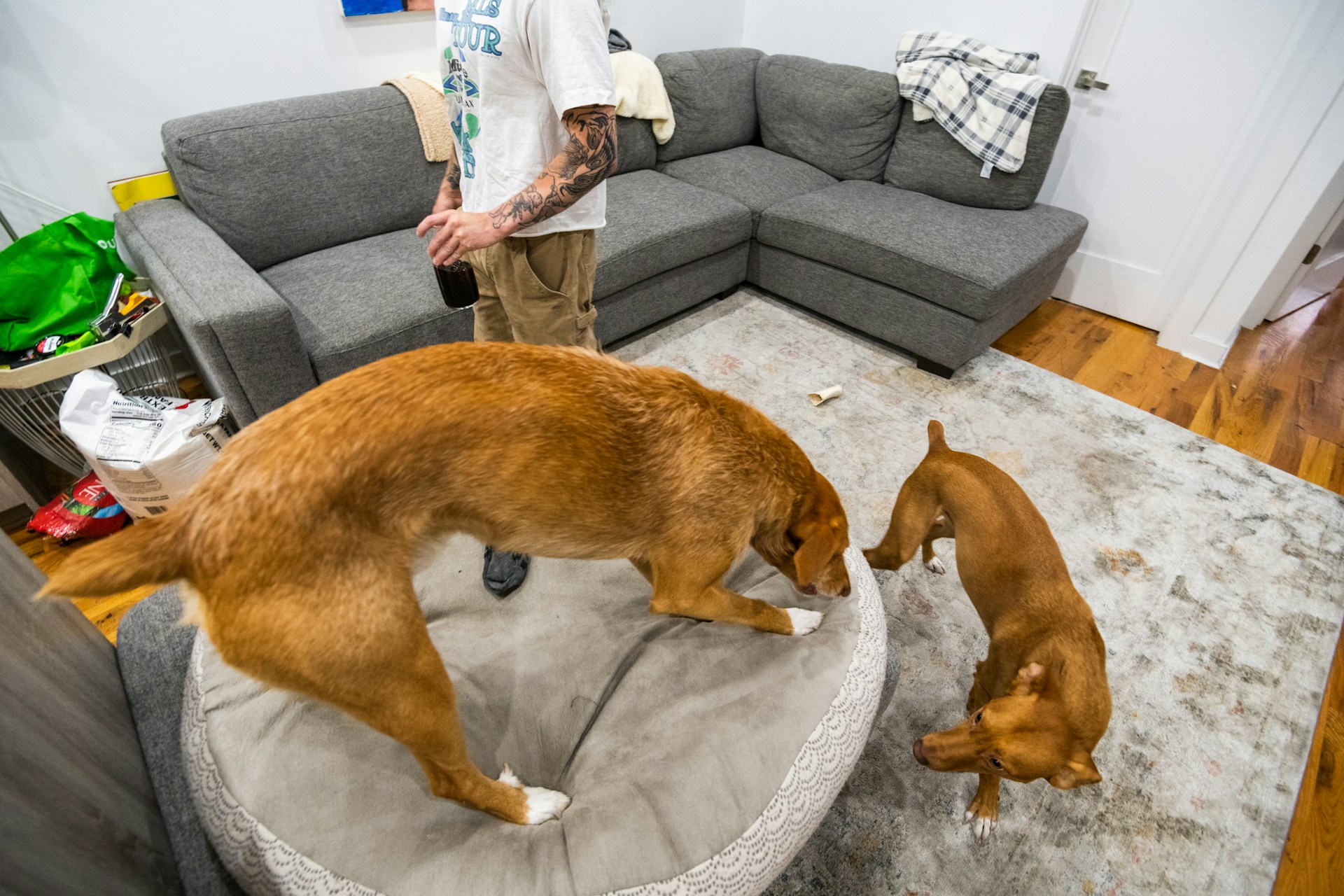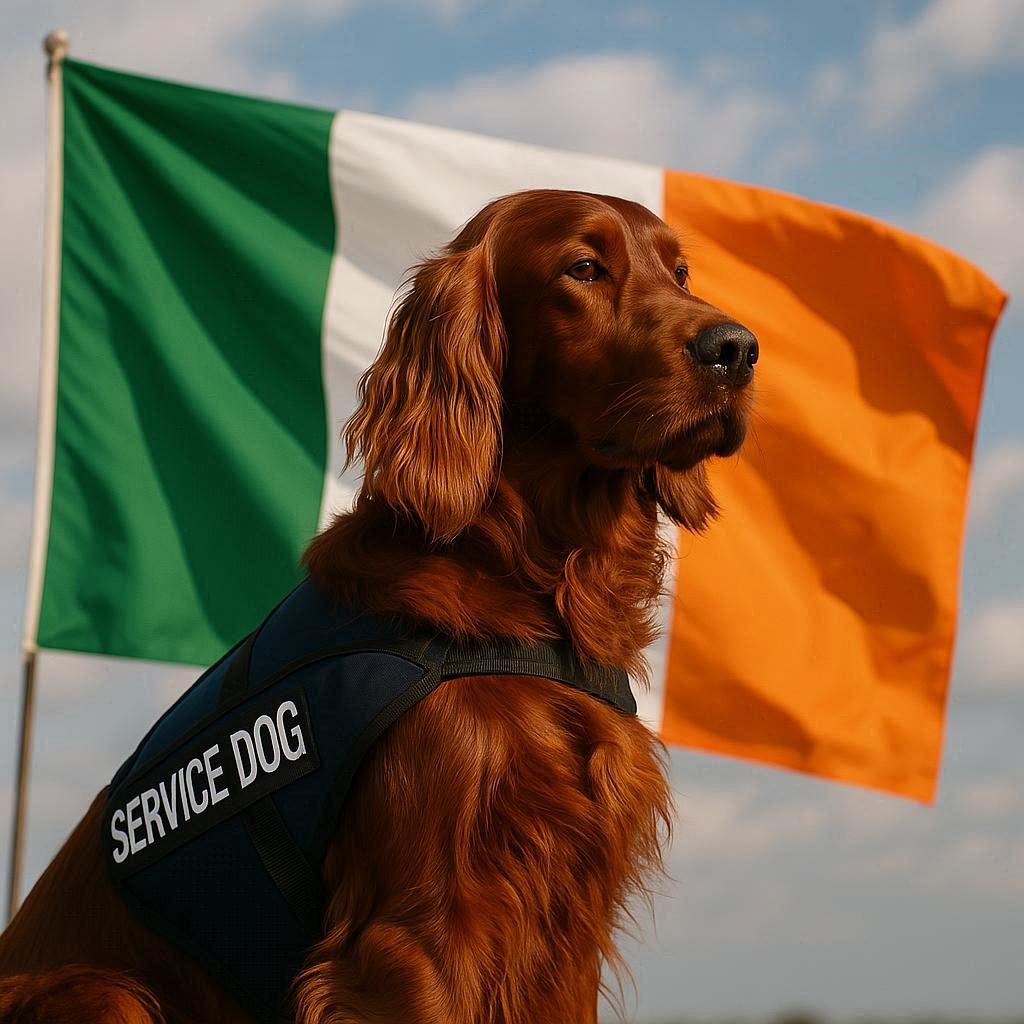
Assistance dogs are specially trained to perform tasks that make a person’s life easier and safer. They help with everyday tasks and activities, warn their users about medical issues, and boost the confidence of their users. This explanation doesn’t cover every role they play, but it gives a clear picture of how much a fully trained assistance dog can change someone’s life.
“Assistance dog” and “service dog” mean the same thing. “Service dog” is predominantly used in North America, while “assistance dog” is more common in Europe. You may be interested to learn that in Australia, both terms are used interchangeably.
This article outlines the legal framework for assistance dogs in the Republic of Ireland and, hopefully, helps you decide whether adopting and training an assistance dog is worth your time and effort.
Can I Get An Assistance Dog?
You may qualify if you have a disability, but a medical professional must confirm it’s a good fit for your health and living situation. Additionally, if you have a child who is recognized as a disabled individual, then you can have a dog trained for them, too. A broad explanation of who qualifies for an assistance dog is presented below:
• People with severe loss of sight and hearing qualify for guide (seeing eye) and hearing aid service dogs.
• People with severe balance and mobility issues, as well as those using wheelchairs, may benefit from the help of an assistance dog.
• People who experience seizures, POTS episodes, cardiac issues, and severe fluctuation of their blood sugar levels may benefit from an assistance dog to alert them to an upcoming medical emergency or to call for aid to people nearby.
• People on the autism spectrum, or those with severe phobias, PTSD, or behavior disorders, who benefit from social, sensory, or safety support.
*This explanation does not encompass everyone who may qualify for an assistance/service dog. Please talk to your GP about using an assistance dog to improve your treatment program and quality of life.*
Being an assistance dog handler is a full-time commitment. You must care for the dog's well-being and safety. You have to adapt to the dog's requirements for mental and physical stimulation. Assistance dog users/handlers often coordinate with family or assisted living staff to better care for their service dogs. Public access and daily life change when you have an assistance dog.
Are Assistance Dogs Allowed in Shops, Hotels, Restaurants, and Public Spaces?
The Food Safety Authority of Ireland has helpful guidance for businesses that are receiving customers with assistance dogs. A brief excerpt from their guidance page is provided below:
“Access to customer dining areas of restaurants and bars could be permitted by the food business at its discretion, provided that:
• Such access to customer dining areas is considered within the food safety management system in operation in the food business.
• The dining areas are monitored.
• All reasonable effort is taken to ensure that food cannot be contaminated.
• Dogs and other pets are kept under the control of their owners.
• Proper procedures are in place to deal with any contamination of the premises.
Retail food businesses that prohibit companion animals should make an exception for guide dogs and assistance dogs.”
The IHREC’s leaflet says:
Assistance dogs are allowed into shops as long as they do not interfere with the merchandise and do not pose a risk to the safety of other customers. Please keep in mind that people who are allergic to dogs can not lawfully request business owners or staff to refuse service to an assistance dog user who is visiting the same establishment.
The Equal Status Acts 2000–2018 prohibit all service providers from refusing entry or charging extra servicing and cleaning fees to a person accompanied by an assistance dog. The Acts apply to people and businesses who:
• Sell a wide variety of goods;
• Use or provide a wide range of services;
• Obtain or dispose of accommodation;
• Attend at, or are in charge of, educational establishments.
• Irish legislation gives assistance dog owners the right to access businesses and services like:
• All forms of public transport, including buses, trains, trams, taxis, Uber, planes, and ferries;
• All forms of hospitality accommodation, such as hotels, Airbnb rentals, hostels, or rental properties;
• All establishments that provide food, including cafés, restaurants, pubs, delis, and supermarkets.
Unlike pets, assistance dogs are considered low-risk for food contamination. Any host that offers food-related service must:
1) Exercise adequate hygiene controls.
2) Accommodate assistance dog users.
Educated and responsible assistance dog users keep their dogs clean, well-groomed, on a leash, and under supervision when visiting public spaces.
Are Assistance Dogs Allowed in Education Facilities?
Assistance dogs are allowed in all schools, colleges, and universities in the Republic of Ireland, including primary and secondary schools. Schools and universities must do everything reasonable to make services accessible for students with disabilities by providing necessary adjustments and facilities. Turning away a properly trained assistance dog or charging extra for one is illegal under Irish equality law.
Talk to your school/university's management and your campus disability or special care office to find a practical solution to hosting you and your assistance dog. If they refuse reasonable adjustments or show a lack of understanding, you can contact the Irish Human Rights and Equality Commission for help.
Their contact page can be found at: https://www.ihrec.ie/contact-us
Address: 16-22 Green Street, Dublin 7, D07 CR20
Email: info@ihrec.ie
Reception Phone: 01 8589601
The reception phone line is open Monday to Friday from 10.30 am-12.30 pm and 1.45 pm-3.15 pm.
Before you ask for IHREC’s assistance, you should consider working with a solicitor and maybe an attorney to resolve the dispute with the problematic service provider.
Who Handles the Training of Assistance Dogs?
Owner-trained dogs do not automatically receive formal service-dog recognition. Training courses and certification from our online platform can serve as the first step toward affordable training for your dog. After completing one of our service dog courses, you may wish to follow up with a formal evaluation with a local Irish facility.
To be accepted as an assistance dog for legal and institutional purposes, the dog’s training must be independently assessed, and the animal must be registered with an accredited organization or an accepted international equivalent. The Irish Courts recognize assistance dogs that are fully trained and registered with established bodies such as:
Irish Guide Dogs for the Blind; Dogs for the Disabled; Autism Assistance Dogs Ireland; International Guide Dog Federation; Canine Partners UK; Dog A.I.D. UK; Guide Dogs UK; Hearing Dogs for Deaf People UK; Medical Detection Dogs UK; Support Dogs UK
Registration with one of these organizations or a comparable international authority (such as the Assistance Dogs International network) ensures the dog meets the standards required for legal recognition and public access. If you are moving to study in Ireland, you may want to check the assistance/service dog policies for:
Trinity College Dublin (TCD)
https://www.tcd.ie/disability/support-and-resources/service-dog/
Dublin City University (DCU)
https://www.dcu.ie/disability/service-dogs
University College Cork (UCC)
https://www.ucc.ie/en/media/support/buildingsandestates/AnimalsonCampusPolicy.pdf
If you prefer to work with a local training facility in Ireland to fully train your paw partner, then you may want to reach out to:
Irish Guide Dogs for the Blind
https://www.guidedogs.ie/about/contact
Irish Dogs for the Disabled
https://dogsfordisabled.ie/contact-us
Autism Assistance Dogs Ireland
https://www.autismassistancedogsireland.ie/how-we-help/assistance-dogs/
Canine Therapy Ireland
https://caninetherapyireland.com/faqs
My Canine Companion
https://www.mycaninecompanion.ie/contact
Paperwork and Gear for Assistance Dog Teams
Assistance dog handlers are expected to provide sufficient documentary evidence that their dogs are fully trained, healthy, safe to be around, and properly vaccinated. If the assistance/service animal is not wearing an identifiable harness, branded lead, or vest, business management and staff members may seek clarification from their guests that the accompanying animal is trained and registered with a local training facility or an equivalent intentional body.
We would recommend you keep on hand: an identification card for your dog, a copy of their certificate for completed training, and a signed medical letter that attests to your legitimate need for an assistance animal. It is best for the card and the certificate to be easily verifiable online. The medical letter must feature the contact details of your licensed health professional. However, the letter does not have to disclose details about your health profile; it serves as a recommendation for an assistance dog as part of your treatment.
Assistance dog handlers in Ireland may be reasonably asked to present any of the following items: Assistance Dog ID Card; Branded Harness, Leash, or Jacket; Registration Certificate (where provided); and Handler Information Sheet.
A card is typically issued by a training facility, evaluation body, or international training service provider. A distinctive assistance/service dog harness, cape, leash, or jacket marked with an organization’s logo can help communicate the dog’s role and status to the public in a clear manner. A certificate or letter from the training organization or evaluation body confirming the dog is fully trained, has completed public access training, and noting the date of completion can help support your public access rights and demonstrate your capabilities as a handler.
Some charities provide a brief overview of the rights of assistance dog teams under the Equal Status Acts 2000–2018 and a concise guide for staff on how to interact with them.
For example, the dog’s vaccination records and a signed health certificate may be carried for the dog’s own welfare or to meet hygiene and safety requirements at public venues. You are also not legally required to provide any medical records to a service provider to support your use of an assistance dog.

